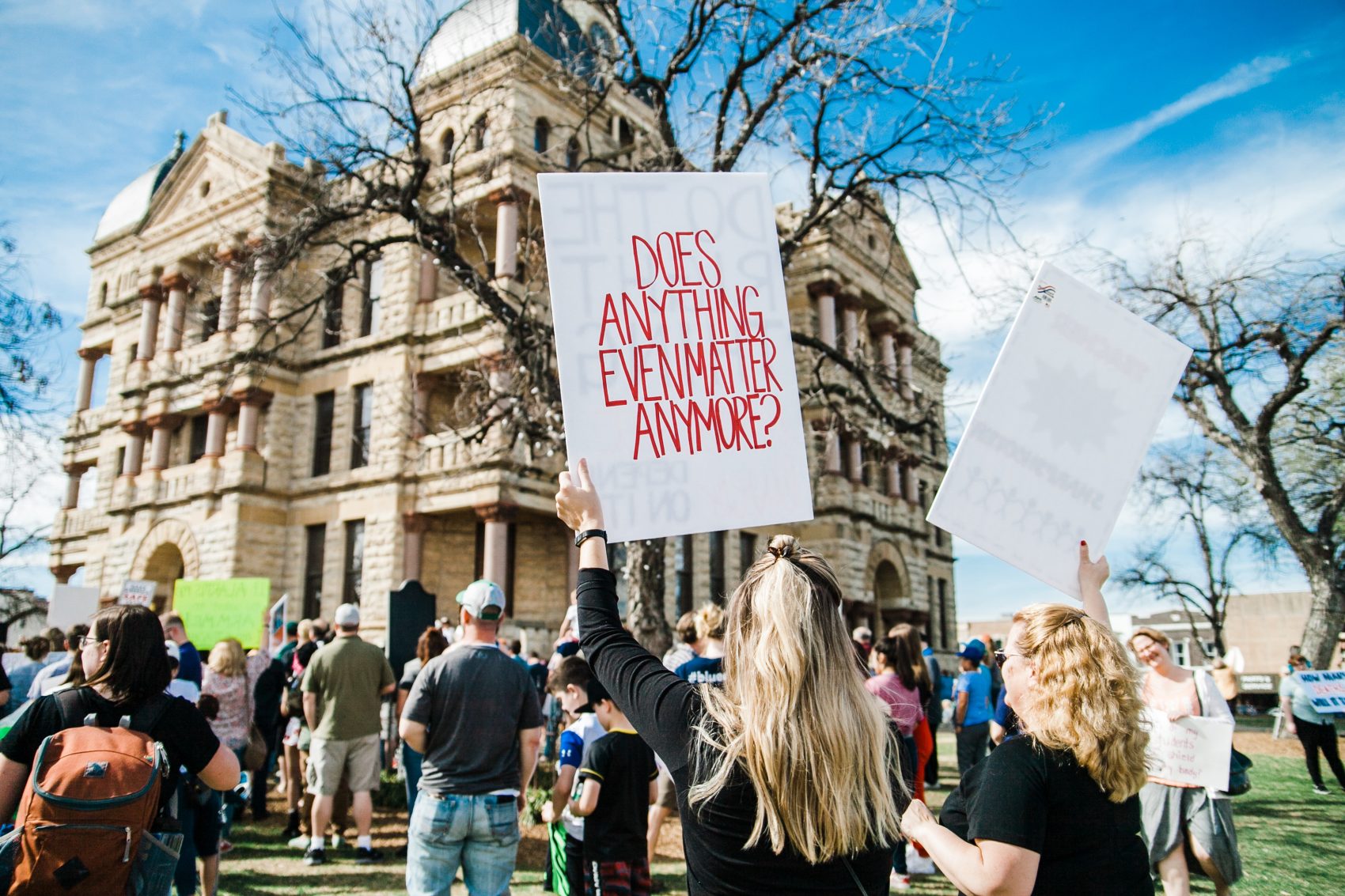Words by Peta Petidis
Amidst fake news, big data, climate change and human rights violations, we can all agree that the state of politics is grim. Most of us are tired of hearing about the mistakes made by older generations and so a proportion of young people prefer to stay out of it altogether. Today, the discrepancies between those in power and young people are creating a wedge in the face of activism. Many of us don’t feel we are being listened to and aren’t sure how to make a noise that will garner attention from those who matter.
While many students are ‘woke’ and becoming aware of global humanitarian and environmental issues, we often find it harder to be a part of matters at home. The political alienation of so many young Australians seems to be a direct result of our disconnection to party politics. Earlier this year, the UN’s youth representative Paige Burton found that less than 20% of Australians aged 12-25 feel they’re represented in current policy. A 2016 Federal Election Survey found 57% of young voters admitted to swing voting. In 2014, political scientist Aaron Martin presented parliament with a report which found only 42% of the younger generation saw voting as a civic duty.
This pessimism could be due to our inability to fit into a voting block like retirees, property investors, small business owners, meaning that we’re often not a priority for government or party policy. Rather than being included in politics, our cohort is often left dealing with the repercussions of existing laws and budget cuts.
Someone who knows how young people carry the brunt of policy is Triple J Hack reporter, James Purtill. James has heard first hand that “young people are bearing a disproportionate financial burden”. He also acknowledges how younger Australians’ distrust in mainstream media can suppress their voices.
University student Paige Spurrell believes a lot of what we see on the news is destructive to our confidence.
“In general, the news is usually quite critical of youth culture … I’m happy to stick to my own little bubble if it means my mental health is prioritised and I don’t throw a cucumber at my TV screen.”
Paige believes the media’s depiction of young people as being violent, drug addicted and uninformed even has an effect on how her family interprets her, let alone policy makers. “If you don’t watch [the news] but your mum has, she is questioning every decision you make.”
Many of Hack’s younger listeners aren’t sure how to dissolve this common stereotype and find a way to be heard. When we’re faced with policies that have a negative effect of us, James believes, “many young people don’t know how to be heard or how to protest, whether to protest, or if there’s any alternative to the status quo that would justify a protest.” While we care too much about the best methods of activism, creating change may be simpler than that.
“The key is creating a sense of agency—a sense that these problems are not insurmountable.”
Maybe we could just start by talking about it until others talk with us and we become louder. Yasmin Jarkin, a former Greens Party volunteer, agrees with the public sentiment that our political party system has left us misplaced. She insists that starting out as an individual voice is imperative to fuel change: “Each voice is valuable, if you don’t use your voice nobody will listen… If people choose to engage in issues, they will begin to form opinions and advocate for their positions. This will ignite rigorous debate in our political system which is fundamental to the operation of any democracy.”
Someone who’s discovered how to use her voice is Emily Cork, head of RMIT’s very own Australian Youth Climate Coalition (AYCC).
“It’s imperative that we campaign for the world we want to live in—activism is the way in which we gain optimism,” she said.
Cork believes the smallest social imprints can usually stimulate conversation and change.
“You’re only one google search away from finding meetings and events you can get involved in.”
Emily’s spontaneity to join and head AYCC thrust her into being a part of the conversation, something she never thought could happen. While staying out of it altogether may be one way to avoid the rut of local politics, it’s important to understand that it tends to have a downward effect, enforcing the perspective that young people are not engaged or aware. The easiest methods of activism like sharing a tweet, inviting friends to a Facebook event or showing up to a rally just to watch, could have a drastic impact on your confidence to speak and be heard.
It seems that just having a chat—negative or positive—creates some volume.


